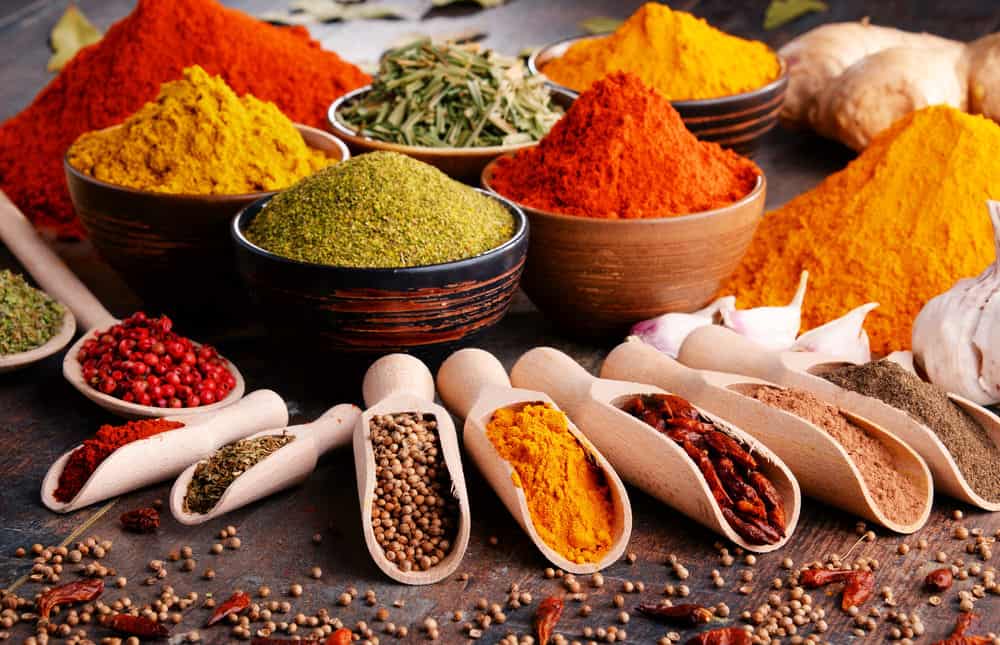Herbs and Spices in Portuguese with English translation
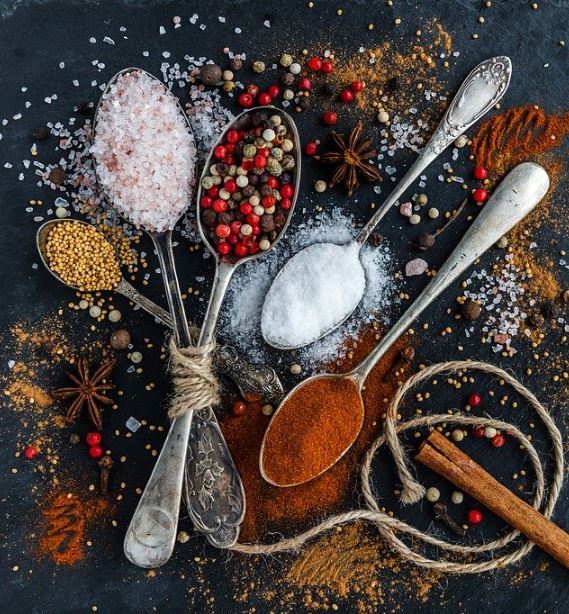
Can you imagine a world where cooking is without any Herbs or spices? Food without any proper or suitable herbs and spices is so bland that it has no taste whatsoever!!! Herbs and spices define a culture, it takes an ordinary dish and make it extraordinary!! The same is the case in Portugal or any European country!!! So do you need a better reason to learn about the list of herbs and spices in Portuguese?
Not only that, one of the “most” common topics in Portuguese is learning the vocabulary for how to describe what you ate and what needs to be cooked. In real life, you would need to order in a restaurant based on whether or not a certain spice is present in the dish. There might be warnings saying that the food contains certain herbs and spices. So, many questions can be asked around this topic. Let us go through the list of herbs and spices in Portuguese and a few example sentences for the same.
A Portuguese Supermarket
When you go to a supermarket, you’ll have an entire rack dedicated to herbs and spices. You can see about 40 – 50 different herbs and spices stacked up there, ready for usage. You need to know the Portuguese vocabulary for the list of Herbs in Portuguese and the list of Spices in Portuguese so that you can buy and use them properly.
These are the common herbs and spices that are found in any Portuguese household. You can now learn the vocabulary for the list of herbs and Spices in Portuguese with tons of examples and English translation.
Translation for Herbs and Spices in Portuguese
So how do you say Herbs in Portuguese? Let’s learn it in Singular and in Plural!!
- The Portuguese word or translation for “Herb” is “a erva”
- The Portuguese word or translation for “Herbs” is “as ervas”
- The Portuguese word or translation for “Spice” is “a especiaria”
- The Portuguese word or translation for “Spices” is “as especiarias”
| Portuguese | English | English Sentence | Portuguese Sentence |
| O alcaçuz | Liquorice | Liquorice is very expensive | Alcaçuz é muito caro |
| O curry | Curry | Curry is spicy. | O curry é picante. |
| O pimentão | Chili | Chili can be sweet or spicy. | O pimentão pode ser doce ou picante. |
| O cardamomo | Cardamom | Cardamom is an indian spice. | O cardamomo é uma especiaria indiana. |
| O cominho | Cumin | Cumin is very tasty | Cominho é muito gostoso |
| A pimenta | Pepper | I like pepper | Eu gosto de pimenta |
| O açafrão | Saffron | Saffron is the most expensive spice. | O açafrão é a especiaria mais cara. |
| A mostarda | Mustard | Can you buy three bottles of Mustard? | Você pode comprar três garrafas de mostarda? |
| O gergelim | Sesame | We are having Sesame Bread and Hummus spread for lunch. | Vamos comer pão de gergelim e pasta de homus no almoço. |
| O cravo | Clove | I purchased cloves for EUR 3 | Comprei cravo por 3 euros |
| A noz-moscada | Nutmeg | We have a Nutmeg plant at home | Temos uma planta de noz-moscada em casa |
| A baunilha | Vanilla | I love Vanilla cake. | Eu amo bolo de baunilha. |
list of fine Herbs and Spices in Portuguese
These are the more refined or “Fine” Spices that are found in any Portuguese household. You can now learn the Portuguese vocabulary for the list of Herbs and Spices in Portuguese with examples in English and in Portuguese.
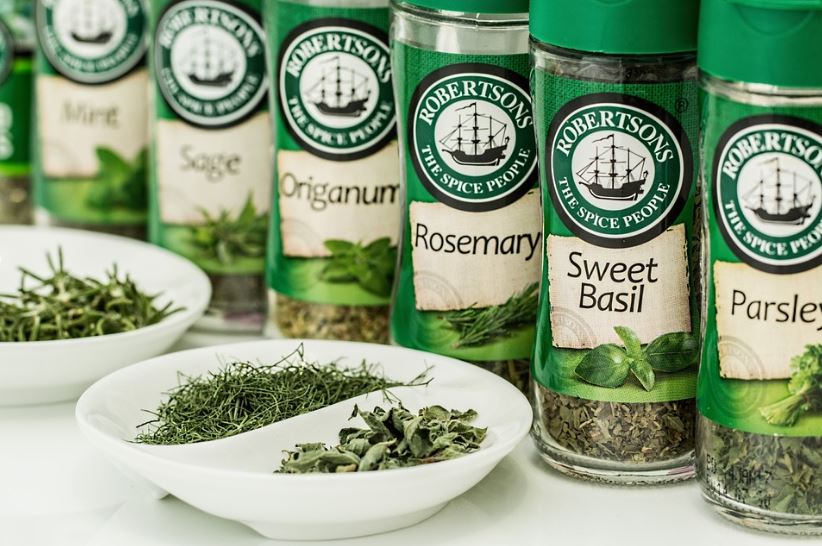
| English | Portuguese | English Sentence | Portuguese Sentence |
| O manjericão | Basil | The goat ate the Basil plant. | A cabra comeu a planta do manjericão. |
| O cerefólio | Chervil | The Chervil plant has large leaf | A planta do cerefólio tem folhas grandes |
| O coentro | Coriander | I sell Coriander in the market. | Eu vendo coentro no mercado. |
| o louro | Laurel | Laurel is a herb. | o louro é uma erva. |
| O estragão | Tarragon | Rich people eat Tarragon everyday. | Pessoas ricas comem estragão todos os dias. |
| o erva-doce | Fennel | Boil water with some Fennel | Ferva água com um pouco de erva-doce |
| O orégano | Oregano | I like pizza with Oregano | Eu gosto de pizza com orégano |
| O alecrim | Rosemary | Rosemary is a herb. It has a lovely smell. | O alecrim é uma erva. Tem um cheiro adorável. |
| O tomilho | Thyme | You can make biscuits with Thyme and Parsley | Você pode fazer biscoitos com tomilho e salsa |
| A salsa | Parsley | Can you bake cookies with Parsley? | Você pode fazer biscoitos com salsa? |
| A erva-cidreira | Lemon balm | I have a headache and so I drank tea with Lemon balm. | Estou com dor de cabeça e por isso bebi chá com erva-cidreira. |
O cardamomo – Cardamom in Portuguese
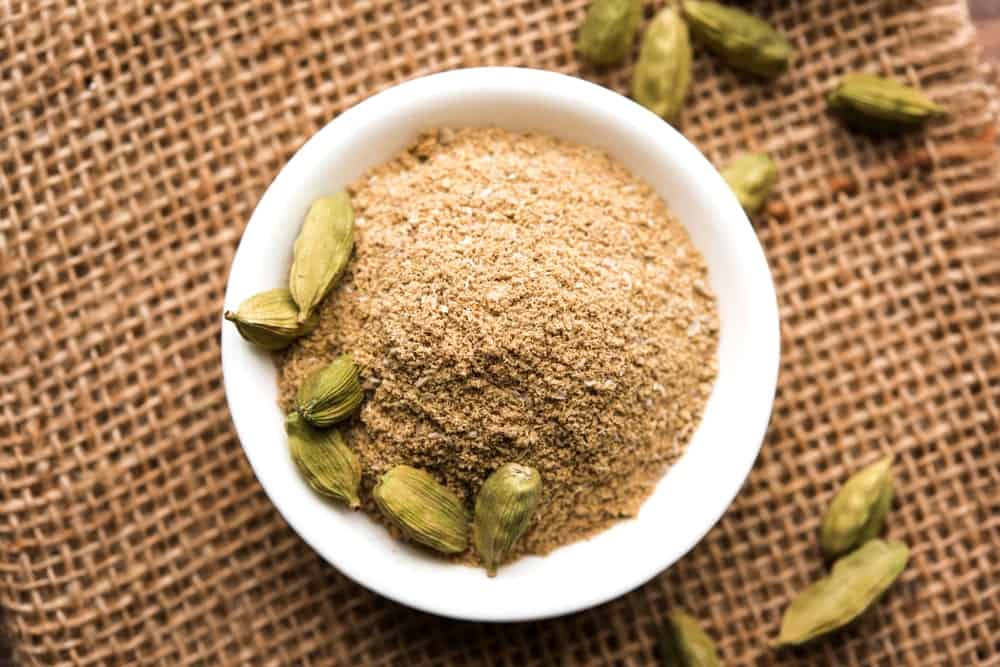
Cardamom or “O cardamomo” in Portuguese is one of the most popular spices in the word. In fact it is called as the “Queen of Spices” in India. Cardamom has a strong flavour and is used for making tea or as an additive for cooking.
In Portugal, Cardamom is used for baking biscuits, cakes and also in some variations of pies and sweets. You can get cardamom in powdered form or also whole, green or black.
dente de alho – Clove in Portuguese
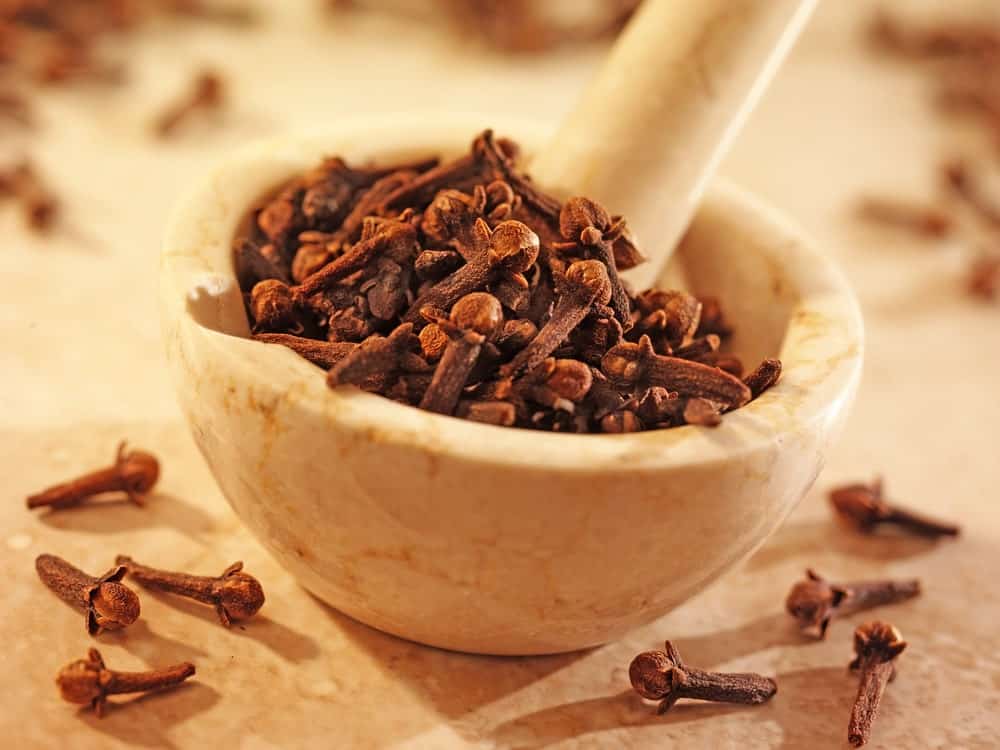
Clove or “dente de alho” in Portuguese is a very popular spice in Europe as it is considered very aromatic and tasty. Along with cardamom, you can find cloves being used for making biscuits and cakes.
Clove is also very popular since it’s an ingredient used in making toothpaste since it is very beneficial for the enamel in the teeth!
Canela – Cinnamon in Portuguese
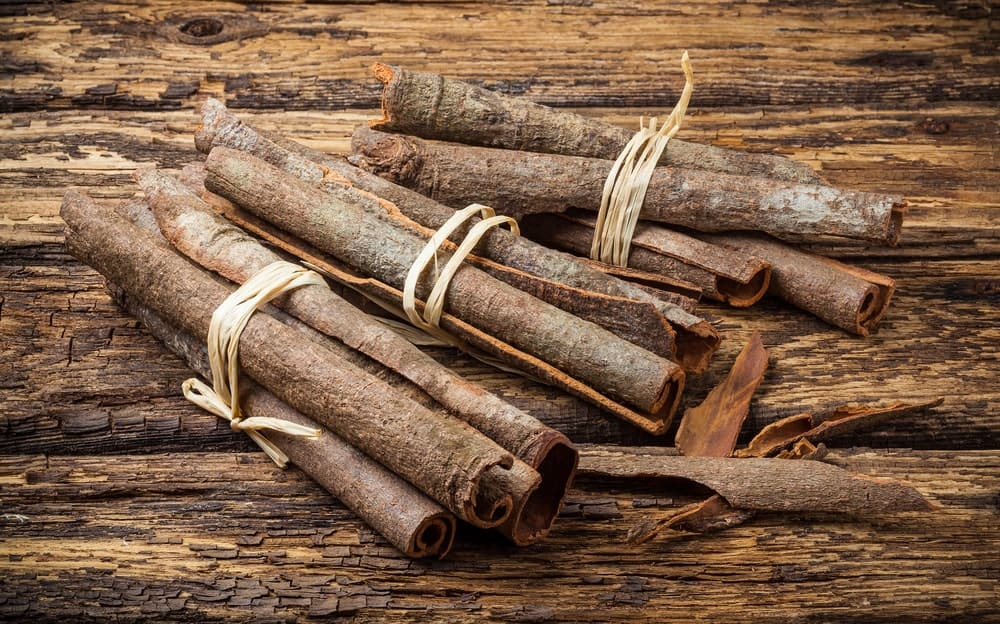
Cinnamon which is also known as “Canela “ in Portuguese is a tree bark is commonly grown and produced in Indonesia, China, and India. It is used as a sweet flavourful ingredient. Cinnamon is well known for its sweet and aromatic taste. The Portuguese word for the spice Cinnamon is “Canela”.
What do Portuguese People make with Cinnamon? It is widely used for making tea and spice blends. Cinnamon buns are a speciality in many countries in Europe as they have a sweet an aromatic taste.
Pimenta preta – Black Pepper in Portuguese
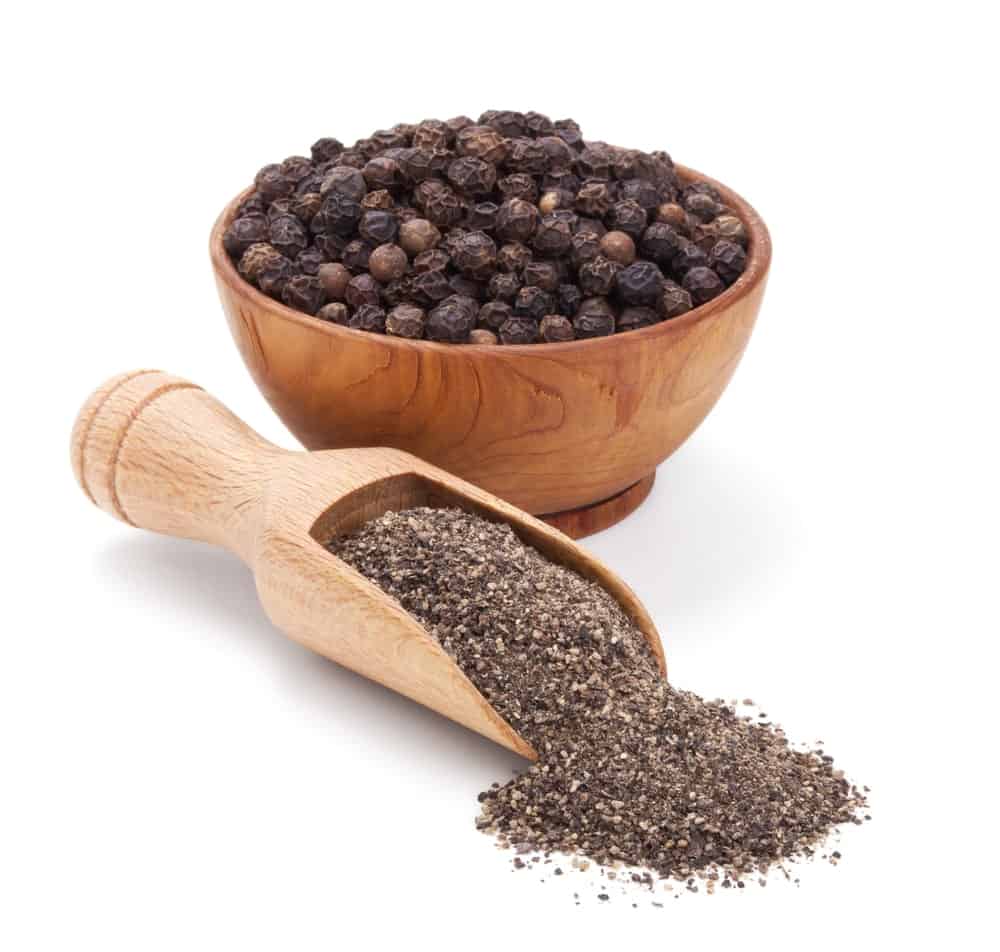
Black Pepper which is called as “Pimenta preta” in Portuguese is without a doubt, the most commonly used spice all over the world. Black pepper has originated from India.
The Portuguese word for the spice Black Pepper is “Pimenta preta”. What do Portuguese People make with Black Pepper? Black Pepper is added to almost every gravy or savoury dish you could think of. Other than its food applications, it is also heavily used for its medicinal value. Pepper is prescribed to mothers, babies and children for boosting immunity.
manjericão – Basil in Portuguese
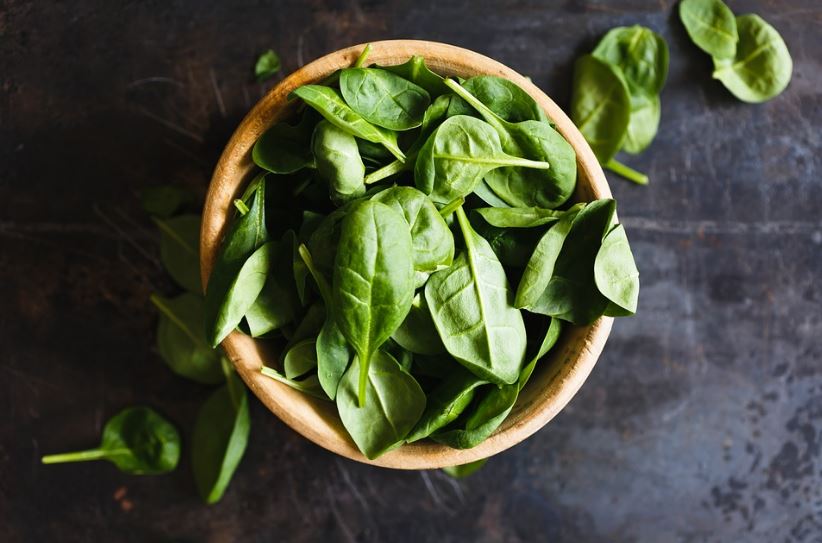
Basil or “manjericão” in Portuguese is one of the famous spices in Portugal. Basil is native to tropical regions from central Africa to Southeast Asia. It is a tender plant, and is used in cuisines worldwide.
The Portuguese word for the spice Basil is “manjericão”. What do Portuguese People make with Basil? Basil is one of the key ingredients for making Pesto Sauce and is fantastic with Pasta. Its brilliant on salads and one can also made a smoothie with Basil. Basil is used for making soups as well.
cerefólio – Chervil in Portuguese
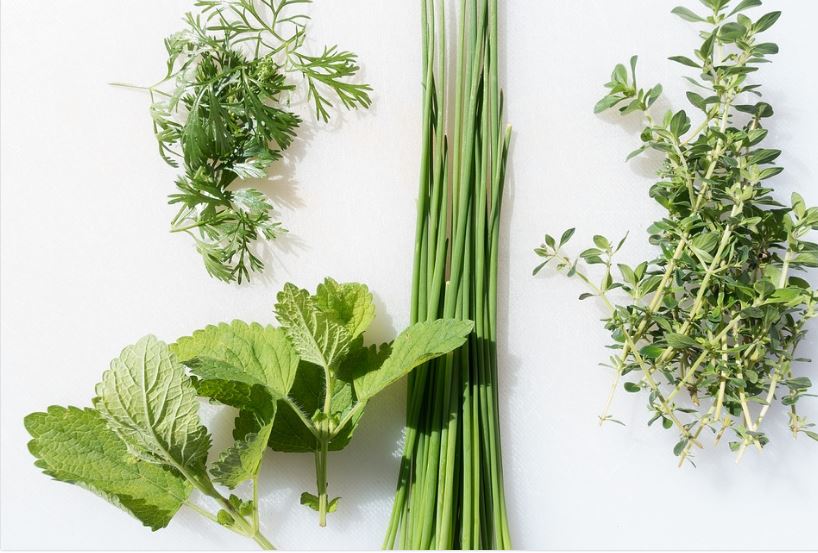
Chervil or “cerefólio” in Portuguese is one of the common spices in Portugal. Chervil is called Portuguese parsley is a delicate herb related to parsley. It is commonly used to season mild-flavoured dishes and is a constituent of the Portuguese herb mixtures.
The Portuguese word for the spice Chervil is “cerefólio”. What do Portuguese People make with Chervil? Chervil is used for making Chervil Vinaigrette and some sauces. It is also used as a top up on pizzas and pastas. Like Basil, it is used for making pastas and soups as well. Lemon chicken with Chervil sauce is a dish you’d find in high end restaurants.
coentro – Coriander in Portuguese
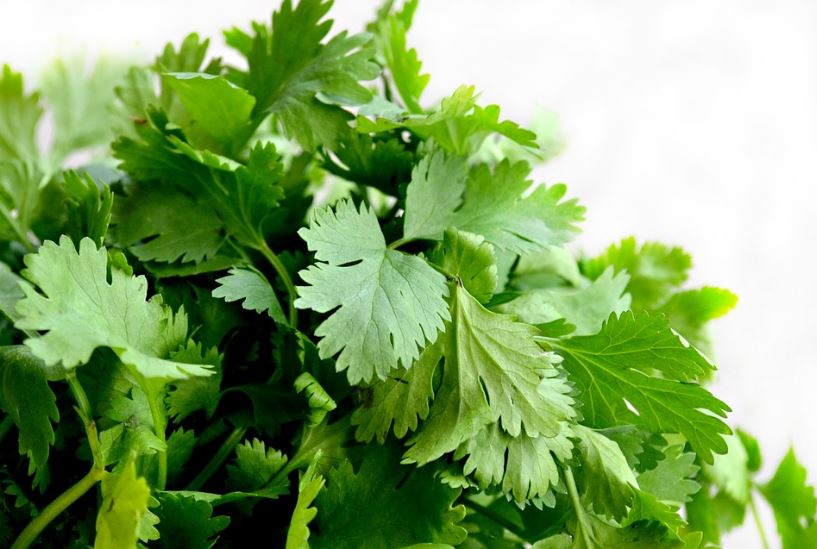
The beautiful herb “coentro” in Portuguese or Coriander in English is one of the more popular spices in Portugal and you can find it in every supermarket. It is commonly used to season South East Asian cuisine such as Indian and Chinese cuisine. It is used generously and adds a strong flavour to dishes.
The Portuguese word for the spice Coriander is “coentro”. What do Portuguese People make with the spice Coriander? Coriander is used for making Dips, Thai Curry, Indian food recipes and sauces. It is used as a top up on rice and Chinese noodles. You can find it commonly in Thai, Indian and Chinese restaurants.
o louro – Laurel in Portuguese
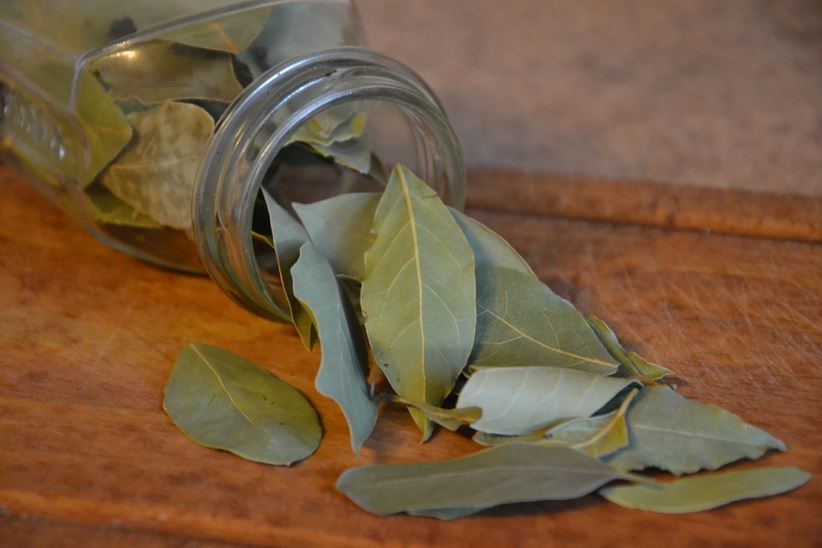
“o louro” in Portuguese or Laurel in English is a world known herb right from the dawn of history!! The bay laurel originates in Asia and it grows into huge trees. Its leaves are evergreen, which were consecrated to the god Apollo, were highly valued in ancient times. A wreath of laurel leaves was given as a high honour to poets, singers and generals who could then “rest on their laurels”.
The Portuguese word for the spice Laurel is “o louro”. What do Portuguese People make with the spice Laurel? Laurel is also used in culinary for making vinegar, liquor, spicing up Indian cuisine and also for making flavoured steamed rice.
o funcho – Fennel in Portuguese
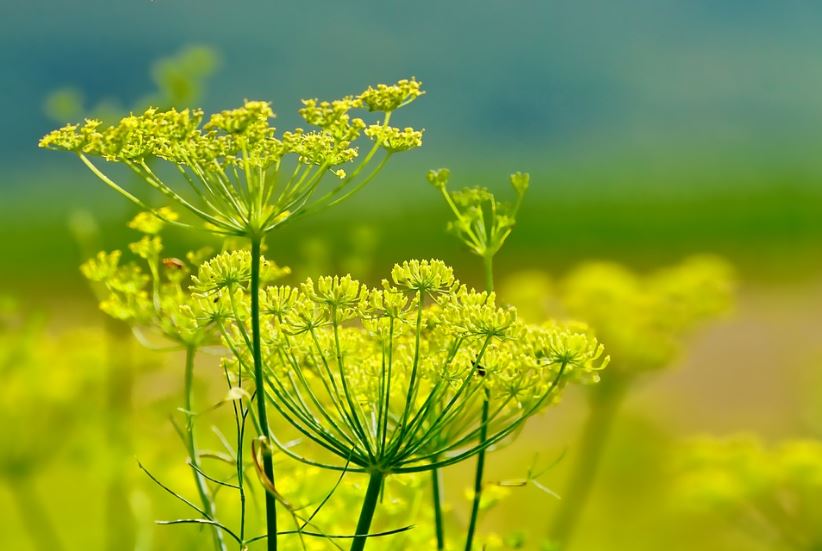
Fennel in English or “o funcho” in Portuguese is one of the very strongly flavoured herbs and is used in cooking all over Asia and Europe. It is a highly aromatic herb used in cooking and is one of the primary ingredients of absinthe.
It is used as a strong flavourful garnish. Mint is well known for its dominating taste. The Portuguese word for the spice Fennel is “o funcho”. What do Portuguese People make with Fennel? Fennel is used for as a pizza topping, topping up pasta, soups, salad dressings, potato dressings, relish and also for stuffing, braising and making spreads.
o orégano – Oregano in Portuguese
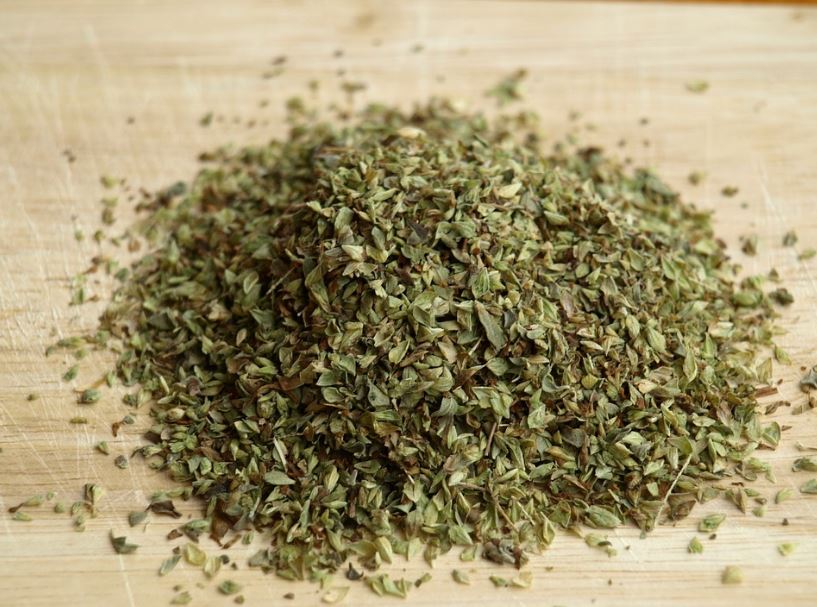
You will be very familiar with the spice “Oregano” in English or “o orégano” in Portuguese as it is the main topping for a pizza and also for pasta sauce. Oregano is one of the most widely-used herbs across the world. It is found in Mexican cuisine commonly and is one of the components of chili powder. The dried form is very common, but fresh oregano is also employed in some dishes.
The Portuguese word for the spice Oregano is “o orégano”. What do Portuguese People make with Oregano? Fennel is used for as the best pizza topping, topping up pastas and soups, salad dressings, potato dressings, relish and also for stuffing, braising and making spreads.
de munt – Mint in Portuguese
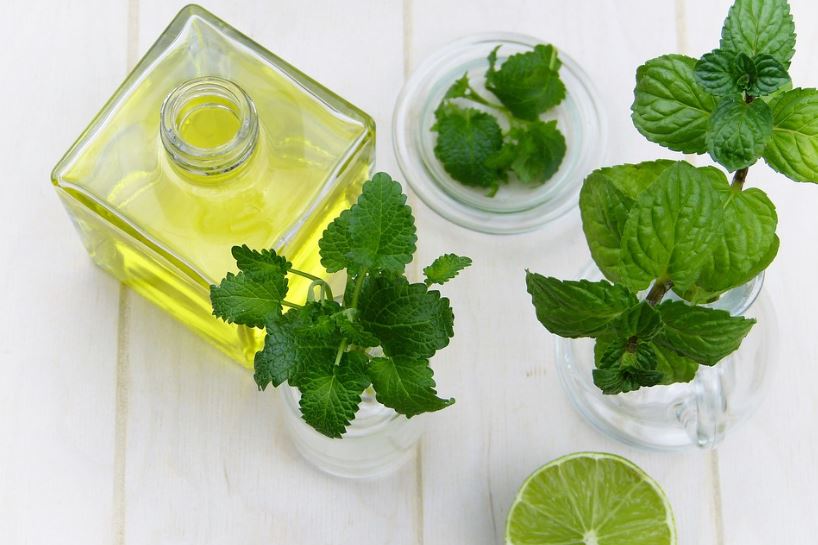
Mint or “A hortelã” in Portuguese is one of the most versatile herbs used in cooking all over the world. It is found in every country and is very tasty.
It is used as a strong flavourful garnish. Mint is well known for its dominating taste. The Portuguese word for the spice Mint is “A hortelã”. What do Portuguese People make with Mint? Mint is used for making mint tea, topping up pasta, Lemon chicken, as a salad dressing, potato dressing and also for making Blugur and couscous.
a salsa – Parsley in Portuguese
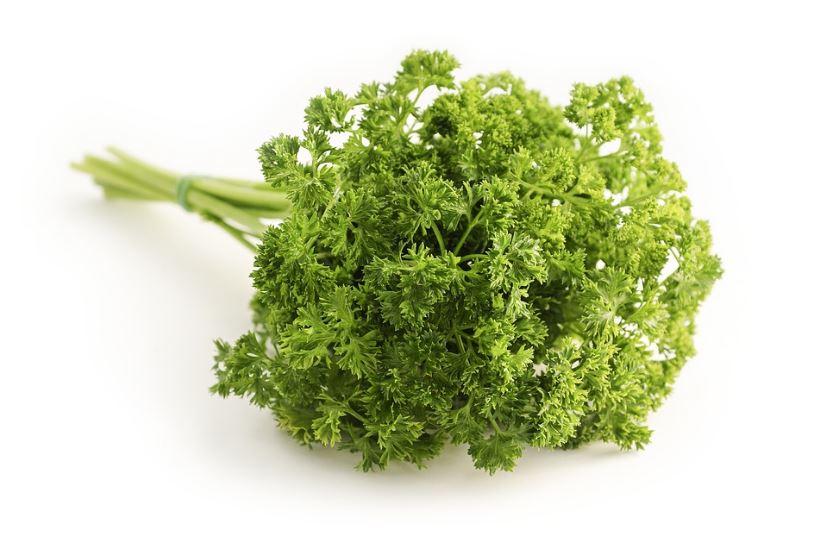
Parsley or “a salsa” in Portuguese is one of the most versatile herbs used in Middle Eastern cooking and is common all over Europe. It is found in every super market across the country.
It is used as a garnish, but more popularly used to spice up food. There are two varieties of parsley: curly leaf and flat leaf. Curly leaf is probably the most recognizable, as restaurants often use it as a garnish on their plating.
The Portuguese word for the spice Parsley is “a salsa”. What do Portuguese People make with the spice Parsley? Parsley is used for making pasta, pesto sauce, as a salad dressing, potato dressing and also for making sauces.
Hashtags
#Herbs and Spices in Portuguese # Herbs and Spices Portuguese # Portuguese Herbs and Spices Names # Herbs and Spices Portuguese Vocabulary # Herbs and Spices in Portugal

